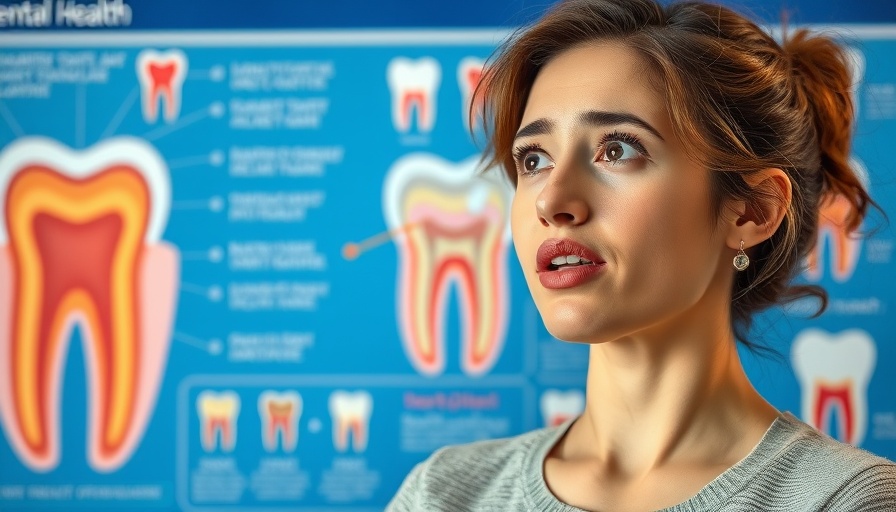
Uncovering the Connection Between Mental and Dental Health
It’s no secret that physical health affects emotional well-being, but many of us overlook the crucial link between our mental health and dental health. Stress, anxiety, and depression can significantly impact our ability to maintain good oral hygiene. This may lead to dental issues such as cavities, gum disease, or even serious complications that ripple back to affect our mental state. Understanding this connection is essential for achieving overall wellness.
In 'mental health vs dental health #shorts', the discussion dives into the intricate relationship between mental and dental health, exploring key insights that sparked deeper analysis on our end.
How Stress Affects Your Oral Hygiene Routine
Stress can create a cycle in which both mental and dental health suffer. When we’re overwhelmed, we often neglect self-care routines, including our oral hygiene. A recent review indicated that individuals struggling with mental health issues frequently miss dental appointments or fail to maintain a consistent dental cleaning routine. This neglect can worsen mental health, leading to a detrimental cycle that affects both mind and body.
Taking Baby Steps for Better Oral Health
It's important to remember that each small action counts. If you feel overwhelmed by the idea of maintaining a complex oral care routine, start simple. Aim to brush your teeth at least once a day. Gradually, as you become more comfortable, you can build towards brushing twice daily. Building a habit isn't just beneficial for your smile; it gives a sense of accomplishment that can enhance your mental vitality.
The Role of Self-Care in Dental and Mental Health
Self-care incorporates both mental and oral health; caring for your teeth isn't just about avoiding cavities or gum disease but about nurturing your overall well-being. Just as taking time for relaxation or mental breaks can help manage anxiety, dedicating time to your dental routine can provide a similar sense of control and ease. This dual approach fosters a healthier mindset and a radiant smile—a complete package of care.
Practical Tips for Dental Well-Being
- Flossing Techniques: Make flossing part of your daily routine to prevent gum disease. This can also contribute to a healthier mouth, which aids in reducing anxiety about dental visits.
- Regular Dental Checkups: Visits to your dentist should be scheduled every six months. Keeping up with checkups can aid in early detection and treatment of issues.
- Using Dental Products Wisely: Using the right dental products, such as fluoride toothpaste and mouthwash, can significantly improve your overall oral hygiene and enhance your comfort in maintaining it.
Breaking Down Myths Around Dental Care
Misinformation about dental care can lead to anxiety around dental visits or expectations. Common myths suggest that brushing harder will remove more plaque. In fact, brushing gently is more effective and less damaging. By educating ourselves and breaking down these myths, we can better approach our dental care with confidence.
Empower Your Journey to Healthy Teeth and Mind
Recognizing the interplay between mental health and dental hygiene can empower you to make informed decisions about your care. The goal isn’t perfection, but progress, and taking baby steps can lead to significant improvements in both areas. Remember, it’s perfectly fine to reach out for support—a therapist or counselor can help manage anxiety that might be hindering your dental care routine.
 Add Row
Add Row  Add
Add 




Write A Comment